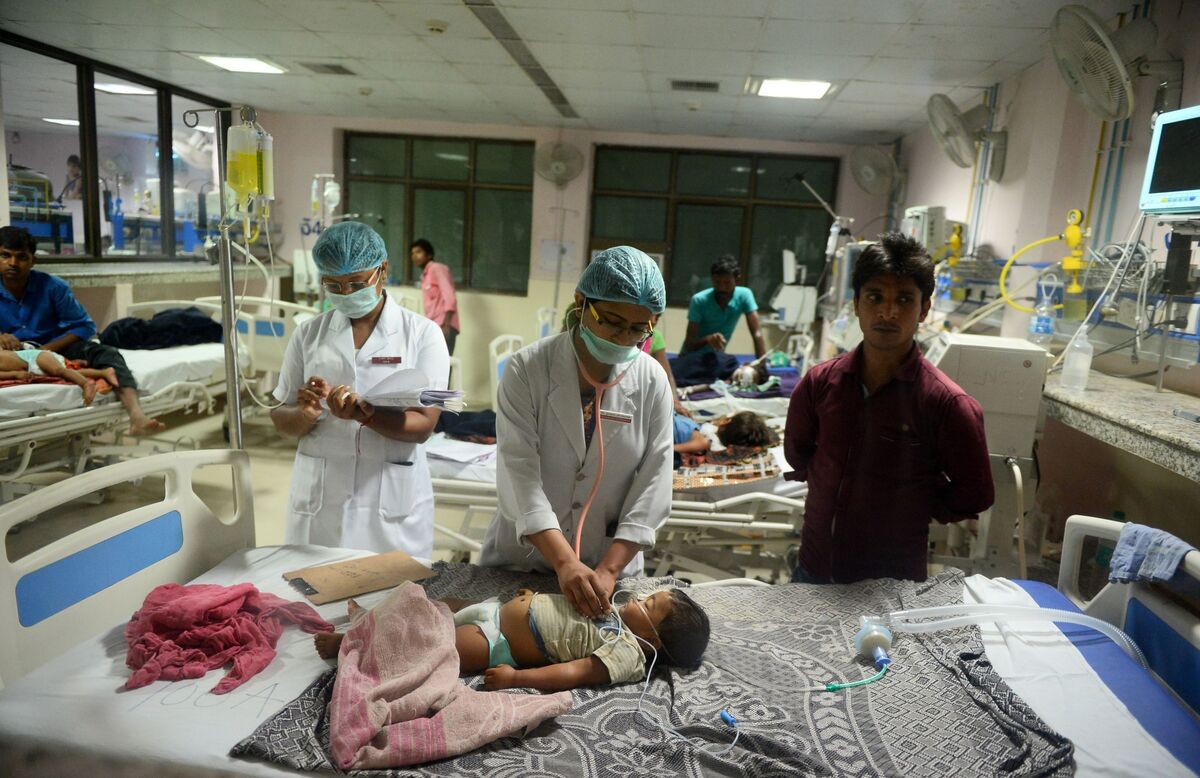
India’s push toward universal health care has Prime Minister Narendra Modi’s political opponents worried, a top government adviser said.
Modi’s government announced a plan last week to provide health insurance to 100 million poor families, which would cover about 40 percent of the population. India plans to cover the entire population “sooner than later,” according to Rajiv Kumar, vice chairman of the National Institution for Transforming India, a government policy research group known as NITI Aayog.
“If we roll this out enough within this calendar year it will be an absolute game changer,” Kumar said in an interview Monday at his office in New Delhi. “It’s a new India that we are giving birth to.”
The health-care plan and higher guaranteed prices for farmers were key elements of Modi’s budget, which allowed for a wider fiscal deficit to tamp down discontent among the poor ahead of a series of state polls this year and national elections in early 2018. In December, Modi’s Bharatiya Janata Party held onto power in his home state of Gujarat with its lowest seat tally in about two decades.
India expects to spend up to 120 billion rupees ($1.9 billion) annually on premium payments to provide poor families with a cover of 500,000 rupees a year. The program was mocked by former Finance Minister Palaniappan Chidambaram, a leader of the opposition Congress party, who said the budget didn’t provide funds to pay for the program.
Funding won’t be an issue and costs will come down as more people sign up, Kumar said. He also took aim at Chidambaram, saying the health-care plan would help secure electoral gains for Modi over the long term.
“That’s the opposition’s fear -- that’s Chidambaram’s fear -- that if we get away with it his goose is cooked," Kumar said.
India has flagged low levels of insurance penetration as a potential damper on its growth, with as many as 70 million people slipping into poverty each year due to sickness. About 60 percent of health-care expenses are paid out of pocket, according to the World Bank, putting medical care out of reach for many in Asia’s third largest economy.
Poor quality of health-care services, a lack of public hospitals and a shortage of doctors are common problems in India’s health-care system. India’s spending on health as a percentage of gross domestic product is the lowest among the BRICS grouping, which also includes Brazil, Russia, China and South Africa.
Kumar said Modi’s government didn’t go for universal health care straight away due to fears the roll-out would fail.
“The scale is so gigantic we don’t know whether we have that capability,” Kumar said, adding he wasn’t sure the states could implement the plan. “The spirit is willing but the body is weak.


0 comments:
Post a Comment